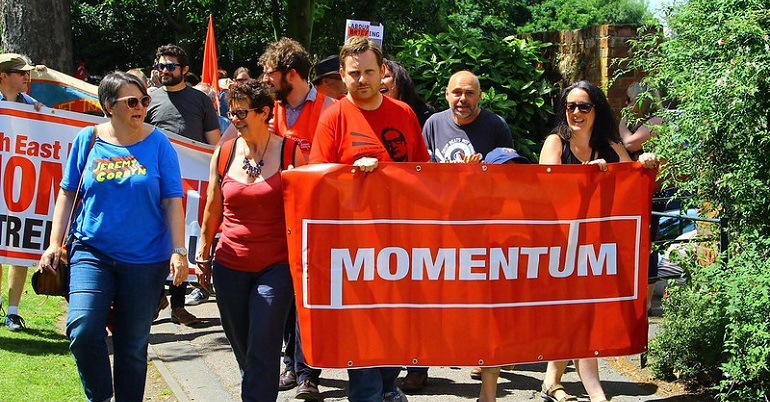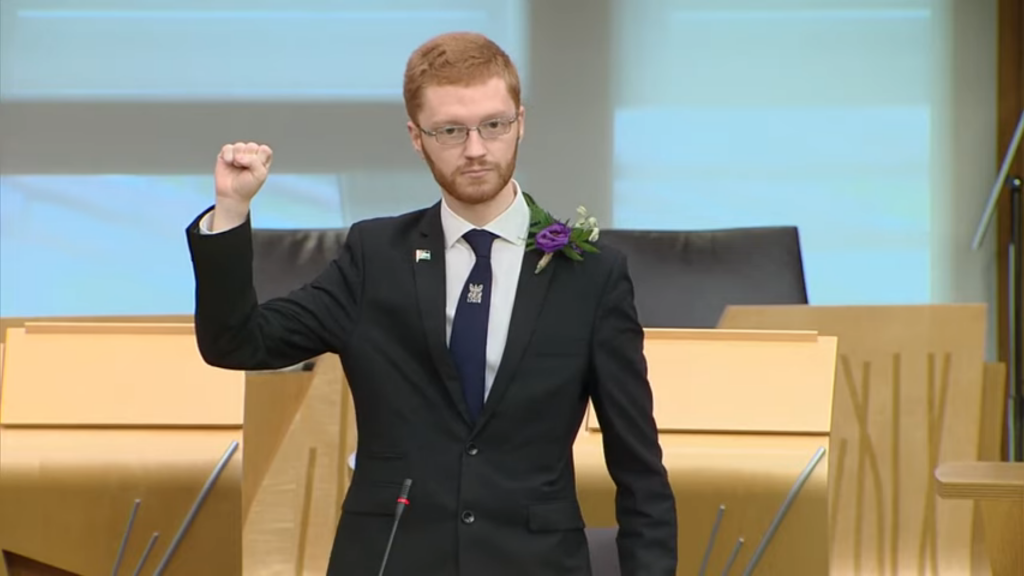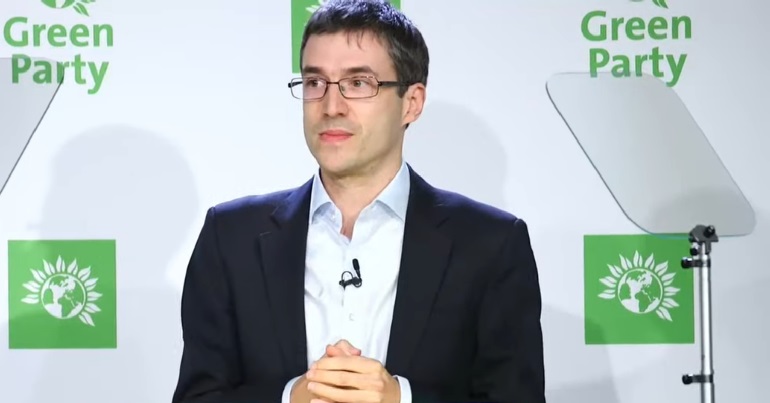What Momentum’s National Coordinating Group elections are really about

From 28 June, Momentum members will vote in its National Coordination Group (NCG) elections to decide who will run the organisation for the next two years. The previous NCG elections were two years ago in the early weeks of the COVID-19 pandemic and with the Labour left still reeling from successive defeats: the 2019 general election loss and Keir Starmer’s election as Labour Leader.
Since then, the left’s position within the Labour Party has weakened even further. Starmer and his allies have moved to disempower the left with expulsions, proscriptions and anti-democratic reforms. Most damaging of all has been thousands of left-wing members leaving the party in despair, with the left’s leaders failing to persuade them to stay.
With the next general election around the corner and Momentum in decline, this NCG election comes at a crucial moment. Will the Labour left continue its trajectory towards marginality or can it turn the ship around?
Hey, I’ve seen this one!
In 2020, the NCG election was contested by two main factions. Momentum Renewal (MR) was understood to be organised by allies of outgoing Momentum chair, Jon Lansman. They were broadly committed to retaining Momentum’s focus as unifying the Labour left and while rebuilding in communities. Their opponents were Forward Momentum (FM), running on a platform of greater member democracy (put into practice with primaries to determine their own slate), constitutionally re-founding the organisation and working with one foot outside the Labour Party as well as in.
Capitalising on dissatisfaction with how Momentum had been run in recent years, the FM slate won decisively taking every NCG place elected by members. Only positions reserved for elected officials (e.g. MPs, councillors, Mayors) and affiliated organisations went to MR supporters.
Some have suggested that this year’s election is simply a re-litigation of the last one, with Momentum Organisers (MO) and Your Momentum (YM) both superficial rebrands of Momentum Renewal and Forward Momentum respectively. This may be true of YM/FM, but is less obviously so of MO/MR.
Understandably, given their status as incumbents, the YM faction is closest of the two to its predecessor. There is continuity in institutional support and some key members who are standing for re-election. Although there has been a significant turnover of most of the slate, members say that this is part of a deliberate strategy to build cadres and promote from the grassroots in the context of a continuous project. Your Momentum has strongly defended the record of the incumbent NCG and put forward a plan to continue that work on the basis of its recently completed re-founding. So far, so 2020.
On the other hand, Momentum Organisers represents a more distinct departure from its supposed predecessor. Nobody who stood for Momentum Renewal in 2020 is standing for Momentum Organisers in 2022. Perhaps most importantly, the slate is also being organised by almost entirely different people including those who have either little association with Jon Lansman or have been actively critical of his term leading Momentum. Momentum Organisers shares a commitment to running a more focused Momentum. However, their platform puts greater emphasis on building power through organising, unlike the perception of Lansman’s Momentum as preoccupied with opaque political manoeuvring.
Spot the difference
There may appear to be little between the two factions this time round. Both of their published election platforms prioritise building grassroots power, defending the left against attacks from the right, and building solidarity with trade unions and movements.
In the grand political scheme, there isn’t much between them. This makes sense considering we’re discussing factions within a faction of a political party. It’s not the policies that need hashing out. If Jeremy Corbyn’s leadership achieved anything, it was cohering the Labour left around a socialist agenda based on opposing austerity, expanding public ownership, delivering a Green New Deal, re-empowering trade unions, opposing racism and promoting international justice.
The debates animating Momentum’s elections are more to do with strategy and organisation, including questions of how to rebuild Momentum’s membership (and the wider Labour left); organisational focus and priorities; and campaigning and movement solidarity.
Although official figures are not published, it is widely understood that since 2019 Momentum has haemorrhaged members while local groups are increasingly sparsely populated. YM/FM’s proposed antidote to this has been an expansion of member-democracy. Its cornerstone has been the recently concluded ‘refounding’ process through which members deliberated on constitutional changes before putting proposals to an all-member ballot. Members have also been given the right to vote on who stands on Momentum-backed slates in some internal Labour elections. This strategy of democracy-as-movement-building is yet to be vindicated as member engagement remains low and the refounding process lasted the duration of the NCG’s term, coming under fire from some of its original participants.
However, they would argue that progress can be made as the foundations have now been laid. For Momentum Organisers, it would seem, a strong organisation doesn’t primarily come from the pretence of more and more democracy through endless primaries and referendums. They will derive their mandate from representative elections and ongoing work across the movement. Their proposals to rebuild member power are rooted in local organising. They pledge to work with groups to develop tailored organising plans and connect grassroots activists with other organisers.
The fundamental debate about what Momentum is for has raged since its founding. Some believe the best use of Momentum’s resources is to operate as the coordinating organisational vehicle of the Labour left, focusing on factional organising within the Party and acting from bases of institutional power. Others believe that Momentum should take a broad focus, building a socialist movement beyond the Labour Party. Although neither operate at the extremes, Momentum Organisers and Your Momentum continue to reflect this polarity.
Momentum Organisers say they are “laser focused on power”. Although they will not make the mistake of getting sucked into bureaucratic Labour party manoeuvring, they will focus on building a strong Labour left by defending its existing bases and expanding them where possible. YM/FM have spent their NCG term balancing Labour Party organising with outward facing movement work (arguably to the detriment of both). They have run slates and supported Labour left candidates in internal elections while also developing non-party specific work on housing, climate and political education. In response, Momentum Organisers argues that Momentum has lost power within the party, while failing to build a significant movement beyond it.
What does it mean for Momentum to ‘campaign’? In 2019, the organisation began to engage in broader movement initiatives like supporting activists to protest Barclays branches over their financing of fossil fuels. This approach continued under the incumbent NCG, including with an eviction resistance campaign where members were encouraged to form their own action groups and work alongside renters’ unions. There was also an effort to build a sub-section of the organisation based on climate justice, moving through different iterations as the ‘Green New Deal committee’ and ‘climate justice working group’. The logic was to re-engage members with the popular issue of climate change, but often veered into replicating the work and structures of Momentum’s affiliate Labour for a Green New Deal. On the other hand, MO has explicitly pledged to end this approach of replicating other organisations and implementing top-down campaigns where (like an NGO) staff or the NCG tell members what campaign to run. Instead, they plan to support existing worker and movement struggles as they occur on the ground and build solidarity with relevant groups rather than replicate them.
High stakes
These are neither self-indulgent hyper-specific ideological divisions nor invented differences to mask a contest between cliques and personalities. These debates are substantial disagreements on socialist strategy and organisation building and they are crucial for determining the strength of the left over the coming months and years.
Momentum is one of British socialism’s few enduring organisations. These questions of whether its decline will be accelerated or reversed are important for the left as a whole. Can the left be a force to extract concessions from a Starmer-led opposition or government? Can the left put itself in a position to recapture the party either outright or in coalition with another tendency? Can the left play its part in re-empowering a radical and militant trade union movement? Can the left rebuild a broad consensus across society for our transformative political program? These NCG elections are about if and how we can achieve these aims.
PS. We hope you enjoyed this article. Bright Green has got big plans for the future to publish many more articles like this. You can help make that happen. Please donate to Bright Green now.
Image credit: FunkDooby – CreativeCommons




I guess a vital question to put to anyone standing for election now is how they stand on proportional representation. This should be a standard question appearing at any hustings.